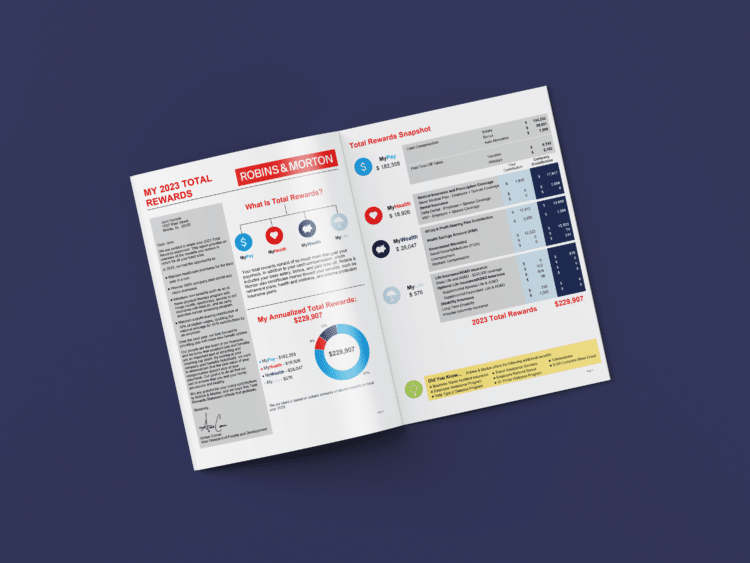
How to Create Meaningful and Comprehensive Total Rewards Statements
Key Takeaways:
- Understand the Purpose: A total rewards statement helps employees understand the complete value of their compensation, beyond their salary.
- Include All Components: Cover base salary, bonuses, benefits, and non-monetary rewards.
- Be Thorough and Transparent: Use straightforward language and provide detailed explanations for each component.
- Personalization: Tailor each statement to reflect the individual employee’s unique compensation and benefits.
- Consistent Updates: Ensure that total rewards statements are updated regularly to reflect changes in compensation or benefits.
A Total Rewards Statement (TRS) is an invaluable total rewards communications tool for showcasing the full scope of an employee’s compensation package. It goes beyond salary to include bonuses, benefits, and various additional perks, providing a clear picture of the total value of each employee’s compensation. Crafting an effective TRS not only helps employees appreciate and understand their full compensation but also aids in boosting morale, improving retention, and supporting recruitment efforts.
Define the Purpose
To begin with, it’s crucial to understand the primary purpose of a total rewards statement (TRS). The TRS is designed to enhance transparency by clearly demonstrating how an employee’s total compensation is calculated. It helps employees feel valued by showcasing the full extent of their rewards, which can boost morale. Additionally, a well-crafted TRS supports retention by reinforcing the benefits of staying with the company and can attract potential employees by highlighting the comprehensive benefits offered.
Identify the Key Components
Once you have a clear understanding of the purpose, the next step is to identify the key components to include in the TRS. You may start with the base salary, which is the fixed amount an employee receives regularly. Next, include any bonuses and incentives, such as performance-related bonuses, profit-sharing, or commissions. It’s also important to detail the benefits provided, including health insurance, retirement plans, and life insurance. If applicable, include the value of any equity or stock options. Finally, describe any non-monetary rewards such as professional development opportunities, work-life balance perks, and recognition programs in your total rewards communications.
Gather Data
Gathering accurate data is essential for creating an effective TRS. Ensure you have up-to-date information on each component. Obtain current payroll records for base salary and bonuses, and collect benefits administration data for details about health insurance, retirement contributions, and other benefits. Determine the current value of stock options or equity shares, if relevant, and document details of non-monetary rewards and perks.
Personalize Formatting
Formatting the TRS for clarity as well as individuality is the next crucial step. First, we organize the statement with a structured layout, using straightforward language to explain each part of the compensation package, ensuring that employees can easily understand the information; this can include charts, graphs, or infographics to visually represent the breakdown of total rewards, making the data more accessible and engaging. Next, we personalize the format, color scheme, and design to the client and the employee to ensure that their total rewards communications have a unique and personal touch.
Evolve Over Time
We understand that a total rewards statement should be regularly updated to remain accurate and relevant. This includes updating the statement to reflect any changes in salary, bonuses, benefits, and much more. It is crucial to incorporate all new or modified perks and development opportunities to ensure that the TRS remains a valuable resource for employees.
Don’t Settle for One-Size Solutions
Creating a total rewards statement is a vital practice for communicating the full value of an employee’s compensation package. By including a detailed breakdown of both monetary and non-monetary rewards, you can enhance transparency, boost morale, and support retention and recruitment efforts.
Creating meaningful, customized and effective total rewards statements continues to be the guiding principle behind RewardsFocus and what we do. To learn more about how our total rewards communications can benefit you and your team, get in touch with us now to start a conversation.